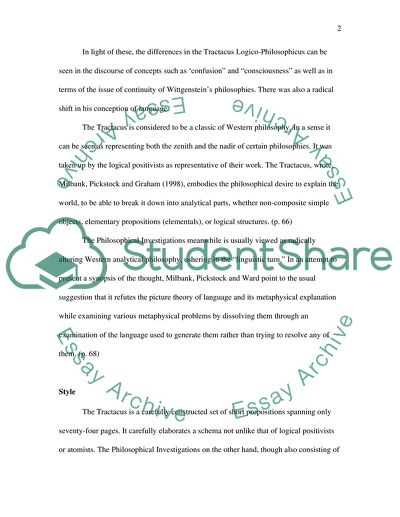Cite this document
(The Philosophical Investigations and the Tractacus Coursework, n.d.)
The Philosophical Investigations and the Tractacus Coursework. Retrieved from https://studentshare.org/philosophy/1547775-in-what-ways-does-the-philosophical-investigations-differ-from-the-tractatus-logico-philosophicus
The Philosophical Investigations and the Tractacus Coursework. Retrieved from https://studentshare.org/philosophy/1547775-in-what-ways-does-the-philosophical-investigations-differ-from-the-tractatus-logico-philosophicus
(The Philosophical Investigations and the Tractacus Coursework)
The Philosophical Investigations and the Tractacus Coursework. https://studentshare.org/philosophy/1547775-in-what-ways-does-the-philosophical-investigations-differ-from-the-tractatus-logico-philosophicus.
The Philosophical Investigations and the Tractacus Coursework. https://studentshare.org/philosophy/1547775-in-what-ways-does-the-philosophical-investigations-differ-from-the-tractatus-logico-philosophicus.
“The Philosophical Investigations and the Tractacus Coursework”. https://studentshare.org/philosophy/1547775-in-what-ways-does-the-philosophical-investigations-differ-from-the-tractatus-logico-philosophicus.


